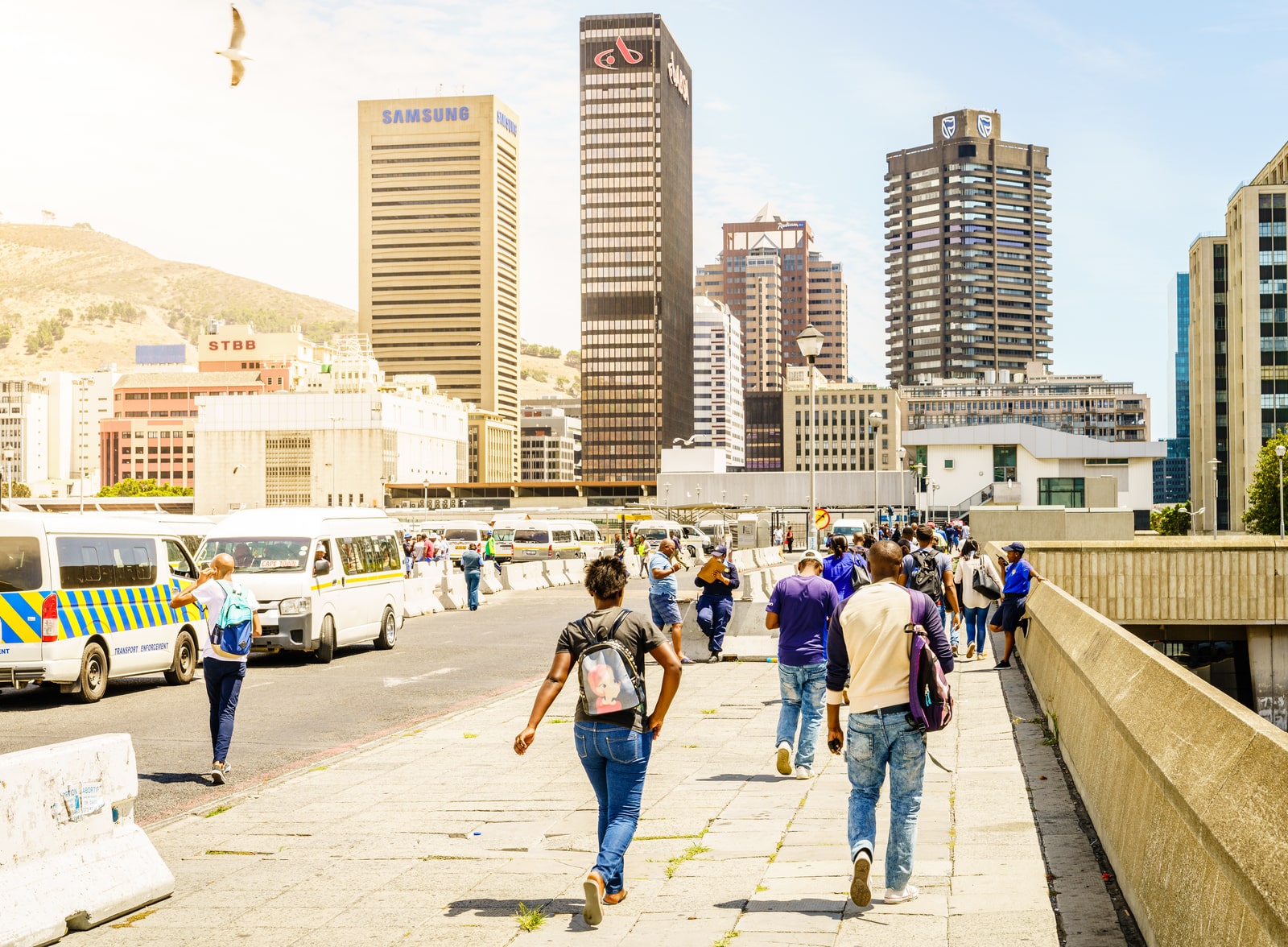“Not all heroes wear capes” is undoubtedly a phrase you’ve come across at some point. Of course, it speaks to the everyday person who recognised an injustice, stood up and decided to take action. This is incredibly powerful when the person who needs help cannot necessarily do anything about their circumstances themselves. Yes, everyday heroes exist, and they are essential when it comes to identifying and reporting possible child abuse in South Africa. Sadly, child maltreatment, neglect and abuse are on the rise in the country, so we need more people to stand up for the vulnerable members of our society. And while the law does specify that people in certain professions have an obligation to report child abuse, it doesn’t mean you are helpless or without options if your job isn’t on that list. So, if you are wondering where to start and how to possibly make a life-changing difference, we are here to tell you that the law is your superpower!
Legal context: the child protection laws in South Africa
Our Constitution is very clear about the rights, dignity and protection of children in South Africa. If we look at Section 28 of the Bill of Rights, specifically, it states, “every child has the right to be protected from maltreatment, neglect, abuse and degradation”. What’s more, the Children’s Act No. 35 of 2005 further expands on the rights of minors, as well as setting out the principles relating to their care and protection. It’s also clear about the legal obligation parents have to raise their children in a caring and nurturing way. In short, the best interests of the child must always be prioritised!
What is child abuse, and what are the types of child maltreatment in South Africa?
Childline defines child abuse as, “any interaction or lack of interaction by a parent or caretaker which results in the non- accidental harm to the child’s physical or developmental state”. As mentioned, child abuse is growing concern in our country, and it’s an issue we need to raise awareness about, with the hopes of ensuring that more people are empowered to do something about it. A significant problem regarding identifying child abuse is the fact that it generally goes unnoticed because a lot of it occurs in the home under the guise of “discipline”.
The 5 main types of child abuse in South Africa
#1 Emotional abuse
This kind of maltreatment can take many forms. It usually involves the deliberate and consistent belittling, humiliation or ridiculing of a child by a parent or caretaker. Of course, while there is no physical harm done to the child, their development can be severely impacted. Low self-esteem, depression and anxiety are just some of the effects.
#2 Emotional neglect
On a similar note, emotional neglect is also a form of abuse. This speaks to the failures of parents or caretakers when it comes to providing affection, attention and support.
#3 Physical neglect
Emotional neglect shouldn’t be confused with physical neglect, however. The latter refers specifically to the failure of parents or caretakers to provide children with basic needs, such as clothing, food, shelter and medical care. Other forms of physical neglect include child abandonment, kicking children out of their homes and not enrolling them into school. Although, in this regard, we mustn’t be too quick to point fingers of blame as socio-economic factors, especially in South Africa, can sometimes leave parents no choice in some matters.
#4 Physical abuse
Any bodily harm inflicted on a child, such as bruises, cuts, burns, etc., by a parent, caretaker or stranger is considered physical abuse. However, as SaferSpaces points out, there is often some kind of “social ambivalence” around this issue because “most cultures and societies use some form of physical abuse, usually milder forms such as spanking, as a means of punishing and disciplining children, and have done so for centuries. This makes it difficult to distinguish what behaviour is truly abusive, and infringes on a child’s “health, survival, development or dignity”.
#5 Sexual abuse
When it comes to sexual abuse, it can entail any form of sexual assault or exploitation of children by parents, caretakers or strangers. This includes sexually inappropriate and criminal behaviour, such as rape, incest, fondling and exploitation.
What are the common signs of child abuse? Some red flags to look out for.
Because most children experience various forms of abuse behind closed doors, it can be difficult for anyone to know any kind of maltreatment or neglect. This is why it’s essential to be observant and not ignore the common signs of child abuse. You could potentially save a life or prevent a child from growing up and dealing with a variety of developmental issues. A child may be neglected or mistreated if:
- they seem too anxious and withdrawn
- they exhibit sudden changes in behaviour or personality and lack concentration
- they tend to become aggressive suddenly
- they don’t seem to have any friends and don’t possess necessary social skills
- they know about adult issues that are not age-appropriate
- they are covered in bruises or appear to be in some form of pain
- they are continually absent from school or start to perform poorly in their studies
Please note: this is not an exhaustive list, as various types of abuse can manifest in many different ways. For more info, check out this presentation on Children, Domestic Violence and Addictions.
So, who can AND must report child abuse in South Africa?
Because our country is dedicated to protecting future generations from all forms of harm, our laws, specifically, Section 110 of the Children’s Amendment Act, state that it is mandatory for people in certain professions to report possible child abuse cases. More specifically, it calls for, “ any correctional official, dentist, homoeopath, immigration official, labour inspector, legal practitioner, medical practitioner, midwife, minister of religion, nurse, occupational therapist, physiotherapist, psychologist, religious leader, social service professional, social worker, speech therapist, teacher, traditional health practitioner, traditional leader or member of staff or volunteer worker at a partial care facility, drop-in centre or child and youth care centre” to report a possible case of child abuse, neglect or maltreatment.
Of course, even if you are not in one of these professions, you can still choose to report a suspected case of abuse on reasonable grounds. Keep in mind that cases of sexual abuse or exploitation, you have a legal obligation under The Sexual Offences Act, to report the abuse as soon as they become aware of it. This is where your inner superhero should kick in and take action!
How to report child abuse in South Africa
Right, so what’s the next step in reporting child abuse? Well, you should identify an institution that can investigate the issue further. This can be a child protection service, the police or a provincial Department of Social Development. From there, the institution will investigate the matter further and, if necessary, take the measures needed to ensure the safety of the child is prioritised. In all cases, the Department will take on the matter and determine whether or not legal action is necessary.
For more guidance on reporting child abuse, feel free to contact:
South African Police Services (SAPS)
Emergency line: 10111
Child abuse reports: childprotect@saps.gov.za
LifeLine South Africa
Tel: 0861 322 322
Website: www.lifelinesa.co.za
The Child Emergency Line
Toll-free: 0800 123 321
Women and Men Against Child Abuse
Tel: 011 789 8815
Website: www.wmaca.org
Childline South Africa
Toll-free: 08000 55 555
Tel: 031 201 2059
E-mail: admin@childlinesa.org.za
Website: www.childlinesa.org.za
Child Welfare South Africa
Tel: 074 080 8315
E-mail: info@childwelfaresa.org.za
Website: www.childwelfaresa.org.za
You can also donate to charities that help abused children in South Africa. Simply visit www.charitySA.org.za for a comprehensive list of places you can contribute to.
What if I am wrong? What if the investigation reveals there was no child abuse?
If a possible case is investigated based on your suspicions and supported claims, and it is found that there was no abuse, you will not be held liable for any damages claims against you. Basically, don’t bring a possible case of child abuse forward based on wanting to get back at the parents or caretakers – that would constitute “malicious intent”, and you could then face a civil claim.
You don’t need to feel helpless! You can make a difference in a child’s life!
We must indeed come together and do what we can to stop child abuse in South Africa. Trusting your instincts and knowing what the signs are, play an important role in helping someone who may not be able to help themselves. Remember, the law is your superpower!
We’ve got your back!
LAW FOR ALL’s experienced lawyers can provide legal advice and guidance on matters relating to reporting child abuse. To have the law in your corner, be sure to have a look at LAW FOR ALL’s comprehensive policies. Sign up today!
—
DISCLAIMER













